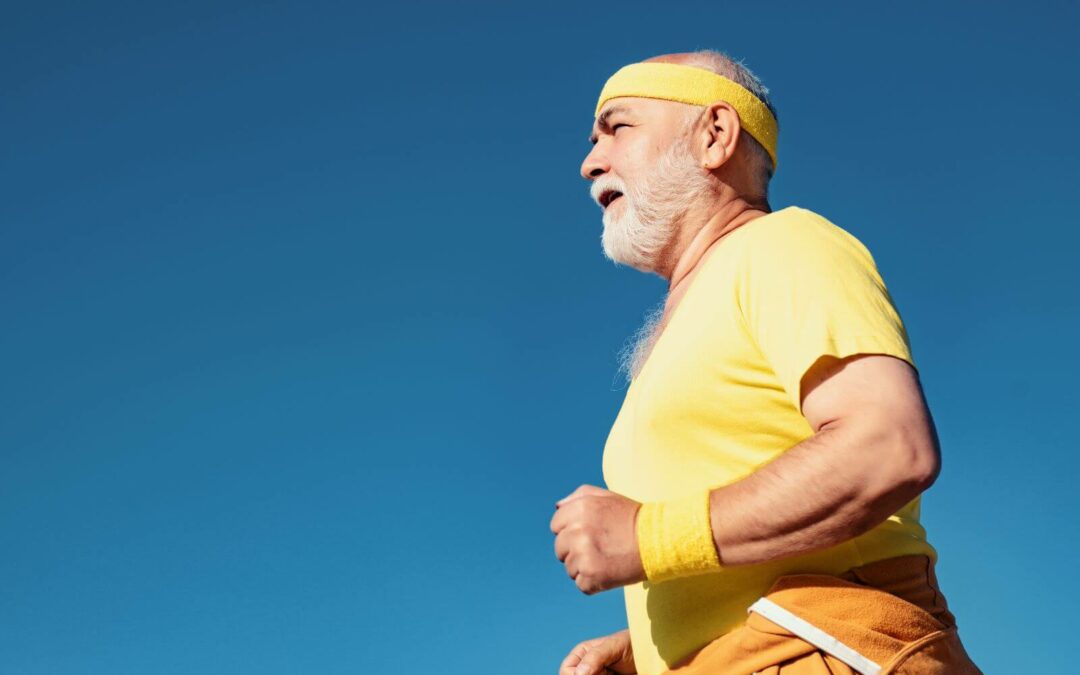It seems that there is no end to the benefits of exercise from improved health to boost mood. Regular physical activity is important at any age, but as we grow older it seems even more important in fighting heart disease, hypertension, diabetes and more. Now new research is finding that aside from improved circulation, stronger joints, bones, and muscles, and improved mood, regular exercise may also improve your hearing health!
Exercise can help you hear better!
A recent study has determined that regular physical activity has been linked to better hearing health and skills! Published in the November Journal of Neuroscience by the University of Florida’s School of Medicine, this team found a substantial correlation between exercise and hearing health. They made this connection using mice who, while they can hear higher frequencies than humans, have similar structures to hear. In a team led by a team led by Dr. Shinichi Someya as part of the University’s Institute on Aging they examined hearing ability in sedentary and active mice. Dr. Someya’s team discovered that mice who were less active experienced higher rates of loss of hair cells and trial capillaries in their auditory system. Active mice who were observed to run on a running wheel developed only around a 5% hearing loss over time, while inactive mice developed hearing loss at roughly four times the rate—around 20%!
Understanding How the Ear Works
While mice are very different from humans in many notable ways the hearing structures of the ear to the brain are surprisingly similar. This includes many delicate components of our auditory system. This includes hairlike cells, known in humans as stereocilia. These cells rest in the cochlea—a snail shaped tiny organ filled with fluid. As sound from the eardrum and tiny bones called the ossicles send audio vibrations to the cochlea it vibrates the fluid within, which in turn stimulates the stereocilia. The stereocilia are filament-like receptors tuned to receive specific hearing frequencies and transmit their signals to the brain.
As sound waves affect varying changes in pressure within the cochlea, the stereocilia are activated. These cells are very fragile and rely on an ample supply of oxygenated blood and nutrition via what is known as strial capillaries which relates to the circulatory system.
The spiral ganglion neurons are a nerve cluster in the inner ear’s root which delivers sends sound waves i to the brain which is where sounds are identified and speech is
Exercise and how it helps prevent hearing loss
This process is amazing and incredibly fragile, and it takes a healthy supply of oxygenated blood loaded with healthy nutrients in order to keep the auditory system staying healthy. As we age it is very common for hearing to deteriorate. In part due to a lifetime of hearing, but also due to lifestyle choices such as a healthy diet and regular exercise.
Dr. Someya’s team, believes based on their research that age-related inflammation may significantly contribute to this harm, lowering performance or impairing cell function. They report good news however: exercising animals had half as many signs of inflammation as their sedentary counterparts as they aged. This means that the same may most likely mirror humans who live an active and healthy lifestyle! By reducing our risk of inflammation, we may be able to counteract some of the same aging effects observed with the mice in their study.
An Active Lifestyle as We Age
The NIH (National Institute of Health) reports that “older adults with an active lifestyle: Are less likely to develop certain diseases. Participating in hobbies and other social activities may lower risk for developing some health problems, including dementia, heart disease, stroke, and some types of cancer.” This surprisingly also includes hearing loss and very quickly the connections between our health systems are interconnected. For instance, when you stay active and healthy your hearing may be better supported. However, when we have hearing loss activity may be impeded due to a decrease of sensory inputs. This can put you at a greater risk for accidents and falls as you are less aware of your surroundings. As we age and the rate of hearing loss increases it is important to monitor for hearing loss annually. q
Schedule a hearing exam with us today and stay on top of your total health now!


